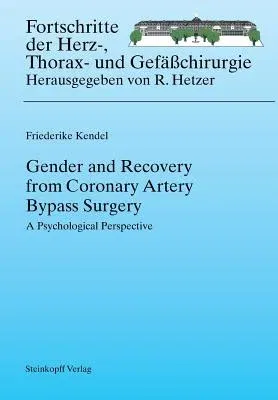Friederike Kendel
(Author)Gender and Recovery from Coronary Artery Bypass Surgery: A Psychological Perspective (2009)Paperback - 2009, 20 November 2008

Qty
1
Turbo
Ships in 2 - 3 days
In Stock
Free Delivery
Cash on Delivery
15 Days
Free Returns
Secure Checkout

Part of Series
Fortschritte in Der Herz-, Thorax- Und Gefäßchirurgie
Part of Series
Fortschritte in Der Herz-, Thorax- Und Gefaachirurgie
Part of Series
Fortschritte in Der Herz-, Thorax- Und Gefachirurgie
Part of Series
Fortschritte in Der Herz-, Thorax- Und Gef Chirurgie
Part of Series
Fortschritte in Der Herz-, Thorax- Und Gefasschirurgie
Print Length
104 pages
Language
English
Publisher
Steinkopff
Date Published
20 Nov 2008
ISBN-10
3798518556
ISBN-13
9783798518551
Description
Product Details
Author:
Book Edition:
2009
Book Format:
Paperback
Country of Origin:
US
Date Published:
20 November 2008
Dimensions:
23.88 x
16.51 x
0.76 cm
Genre:
Clinical (Medicine)
ISBN-10:
3798518556
ISBN-13:
9783798518551
Language:
English
Location:
Heidelberg
Pages:
104
Publisher:
Series:
Weight:
226.8 gm